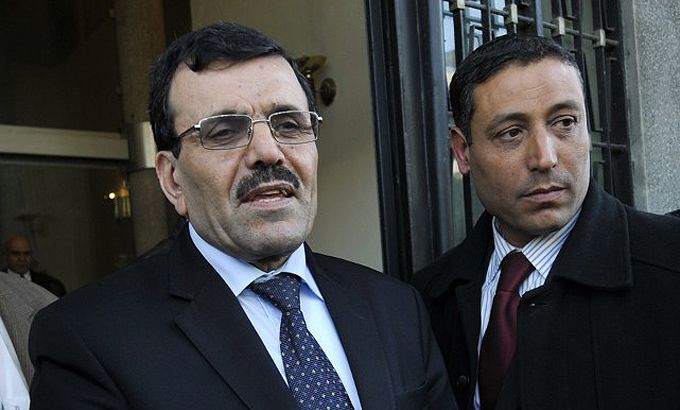Tunisia minister asked to form new government
Secular opposition angered by naming of Ali Laarayedh, a part of ruling Ennahdha’s hardline wing, as PM-designate.

Moncef Marzouki, Tunisia’s president, has asked Ali Laarayedh, the interior minister, to form a government within 15 days, after the main Islamist Ennahda party named him as their candidate, the presidential spokesman has said.
Marzouki’s spokesman told a news conference on Friday that Ennahdha leader Rached Ghannouchi had formally nominated Laarayedh to succeed outgoing Prime Minister Hamadi Jebali, who resigned on Tuesday.
Laarayedh, 57, was a founding member of Ennahdha, and served as the party’s secretary-general in the 1980s, up until his arrest in 1992. He served 14 years in prison.
Ennahdha is the largest party in the National Constituent Assembly with 89 of the body’s 217 seats.
Marzouki’s secular Congress for the Republic party, the second-largest with 29 seats, has already said it will join a new Ennahdha-led coalition. As such, Ennahdha should have little trouble getting the 109 votes needed for a majority.
“He is the official candidate of Ennahdha for prime minister,” Mouadh Ghannouchi, son of party chief Rached Ghannouchi, said earlier on Friday.
Laarayedh said that he would form a government for “all Tunisians”.
“We are going to enter the phase of forming a new government that will be for all Tunisian men and women, taking into account the fact that men and women have equal rights and responsibilities,” he said after agreeing to take the position in a meeting with Marzouki on Friday evening.
Liberals concerned
Ennahdha’s choice is likely to raise hackles among liberal Tunisians, some of whom accuse Laarayedh’s interior
ministry of failing to curb violence by political Islamists against advocates of secularism, including journalists and artists.
“The decision deepens the crisis because Larayedh headed the ministry responsible for the killing of [secular politician Shokri] Belaid and violence that has spread throughout the country,” said Zied Lakhdar, a leader in the Popular Front, in which Belaid was secretary-general.
Mahmoud Baroudi, a leader of the secular Democratic Alliance opposition party, said Laarayedh’s appointment would aggravate tensions and increase anger in the streets.
“He was responsible for leniency with Islamist violence against human rights activists,” he said, blaming Islamists for disrupting opposition meetings and assassinating Belaid.
Laarayedh, 57, became interior minister when Jebali’s government was formed in December 2011 after an election in October.
He is viewed as belonging to Ennahdha’s hardline wing, which rejects any political role for parties linked to the era of deposed President Zine al-Abidine Ben Ali.
Jebali, who is secretary-general of Ennahdha, resigned on Tuesday after his plan for a non-partisan cabinet of technocrats to prepare for elections collapsed, largely because of opposition from within his own party and its leader, Rached Ghannouchi.
The assassination of opposition leader Shokri Belaid on February 6 plunged Tunisia into its worst political crisis in the two years since a revolt toppled Ben Ali.
The secular leftist’s killing sent protesters flooding into the streets, exposing the deep rifts between Tunisia’s empowered Islamists and their liberal and secular-minded opponents.
The government says that arrests have been made in the murder inquiry, but has not provided specifics.